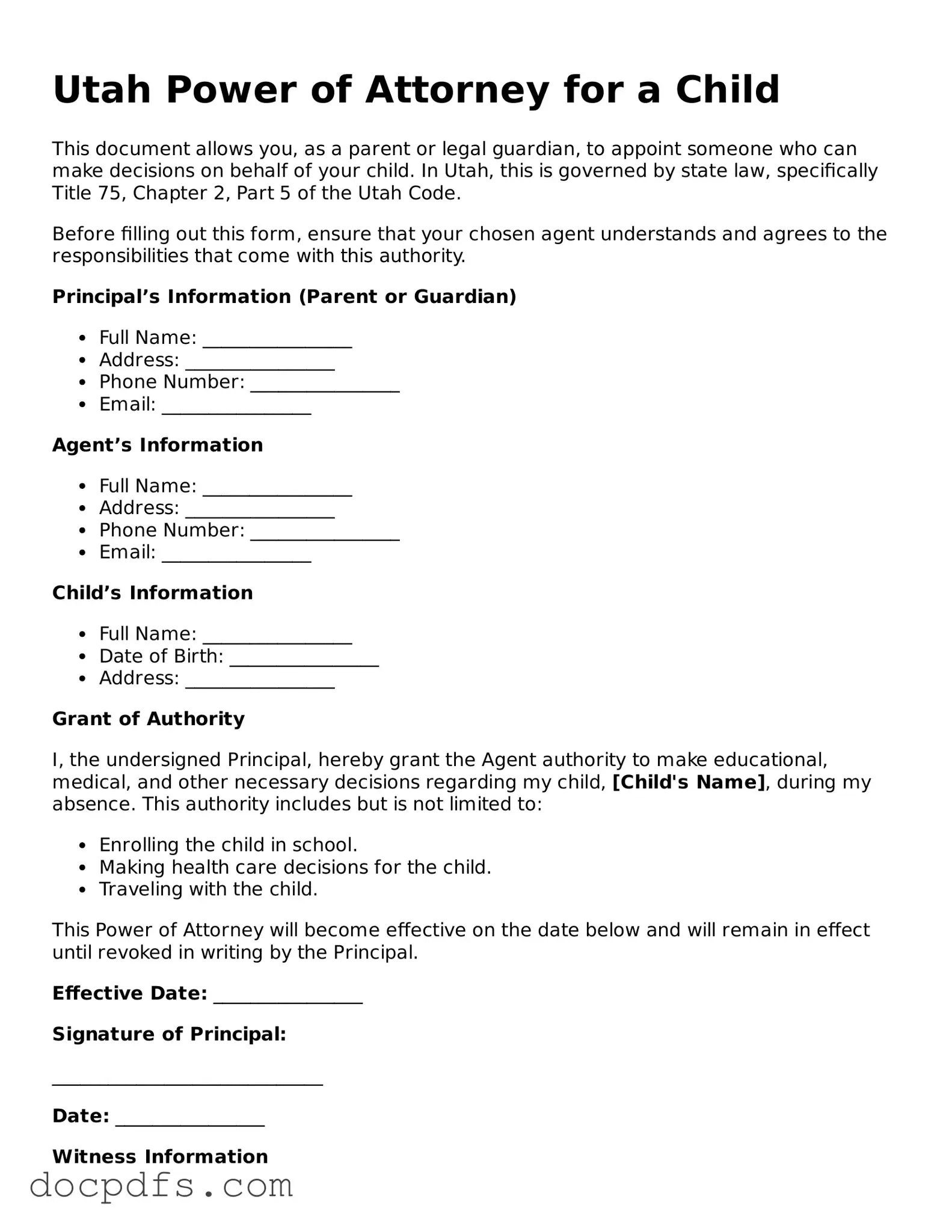What is a Power of Attorney for a Child in Utah?
A Power of Attorney for a Child in Utah is a legal document that allows a parent or guardian to grant authority to another adult to make decisions on behalf of their child. This can include decisions related to education, healthcare, and general welfare. It is especially useful in situations where a parent is temporarily unavailable, such as during travel or medical emergencies.
Who can serve as an agent under this Power of Attorney?
Any responsible adult can serve as an agent, provided they are at least 18 years old. This person could be a relative, family friend, or neighbor. It is essential to choose someone trustworthy who understands the responsibilities involved in caring for your child.
What decisions can the agent make?
The agent can make a variety of decisions, including:
-
Healthcare decisions, such as consenting to medical treatment.
-
Educational decisions, including enrollment in schools and participation in activities.
-
General welfare decisions, which may involve daily care and supervision.
However, the Power of Attorney can be tailored to limit or expand the agent's authority based on the parent's preferences.
How long does the Power of Attorney last?
The Power of Attorney for a Child can be effective for a specified period or until revoked by the parent. If no end date is specified, it typically remains in effect until the child reaches the age of 18 or until the parent revokes it.
Do I need to have the Power of Attorney notarized?
Yes, in Utah, the Power of Attorney must be signed in the presence of a notary public to be legally valid. This step helps ensure that the document is recognized by schools, healthcare providers, and other institutions.
Can I revoke the Power of Attorney once it is established?
Yes, you can revoke the Power of Attorney at any time. To do this, you should provide a written notice of revocation to the agent and any relevant institutions that may have relied on the original document.
What happens if the agent cannot fulfill their duties?
If the designated agent is unable to fulfill their responsibilities, the parent should appoint a new agent. It is advisable to include a backup agent in the Power of Attorney document to ensure continuity of care for the child.
Is there a fee associated with creating a Power of Attorney?
While there is no fee required to create a Power of Attorney for a Child, costs may arise if you choose to consult an attorney for assistance. Additionally, there may be nominal fees for notarization services.
Can the Power of Attorney be used for multiple children?
Yes, a single Power of Attorney can be created to cover multiple children. However, it is often clearer and more straightforward to create separate documents for each child, especially if their needs differ.
The Power of Attorney for a Child form can typically be obtained from legal stationery stores, online legal resources, or through an attorney. It is important to ensure that the form complies with Utah state laws.

